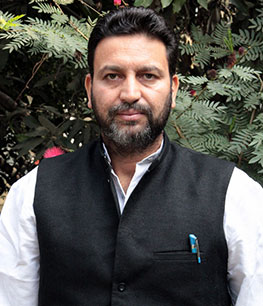The picturesque landscapes of Kashmir have long captivated visitors with their awe-inspiring beauty. However, beneath the surface of this natural paradise lies a growing menace that threatens its ecological integrity: plastic pollution. The challenges faced by NGOs and environmental journalists in addressing this issue are multifaceted and require urgent attention.
One significant obstacle hindering progress is the lack of awareness among the people of Kashmir regarding the devastating consequences of plastic pollution. Many individuals remain oblivious to the detrimental impact on both the environment and human health. Without a deep understanding of the issue, the motivation to combat plastic pollution is likely to remain subdued. Efforts must be made to disseminate knowledge and raise awareness through educational campaigns that highlight the grave implications of plastic waste.
In addition to awareness, a severe limitation faced by NGOs and environmental journalists is the scarcity of resources at their disposal. Insufficient funding, a shortage of manpower, and a lack of technological capabilities hamper their ability to effectively tackle the problem. To address this, it is crucial for stakeholders to prioritize allocating adequate resources to these organizations, enabling them to implement innovative solutions and drive impactful initiatives against plastic pollution.
However, the challenges do not end there. The political will of the Kashmiri government plays a pivotal role in determining the success of combating plastic pollution. If the government fails to demonstrate a strong commitment to addressing this pressing issue, the endeavors of NGOs and environmental journalists will inevitably encounter significant roadblocks. It is imperative for policymakers to recognize the urgency of the situation and provide the necessary support and legislative framework to empower these organizations to act effectively.
The participation of citizens is equally vital in the fight against plastic pollution. While NGOs and environmental journalists strive tirelessly to raise awareness and promote sustainable practices, they face an uphill battle without the active cooperation of the local population. Factors such as a lack of motivation, convenience, or a dearth of knowledge about alternatives can impede citizen engagement. To foster a sense of responsibility, comprehensive educational programs should be implemented, emphasizing the benefits of reducing plastic waste and encouraging individuals to adopt eco-friendly practices.
Furthermore, the absence of robust regulations and enforcement mechanisms exacerbates the challenge of plastic pollution in Kashmir. Without a comprehensive framework to control the production, usage, and disposal of plastics, the efforts of NGOs and environmental journalists can only achieve limited success. It is imperative for policymakers to enact stringent regulations that hold individuals, businesses, and industries accountable for their plastic waste, ensuring that the burden of responsibility is shared by all.
To effectively address the menace of plastic pollution in Kashmir, a collaborative and multi-pronged approach is essential. This approach should encompass widespread awareness campaigns to educate the public, mobilization of communities to actively participate in clean-up initiatives, the formulation of stringent governmental regulations, and media advocacy to amplify the cause and garner public support. Only through concerted efforts, sustained commitment, and collective responsibility can we hope to overcome the challenges posed by plastic pollution and preserve the natural splendor of Kashmir for future generations.
Author is Founder and Chairman J&K RTI Movement. The opinions expressed in the article reflect the author’s views



